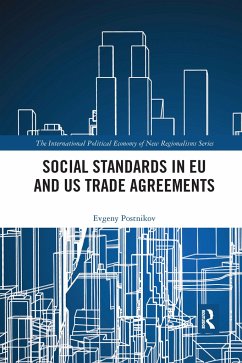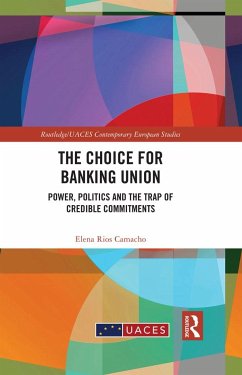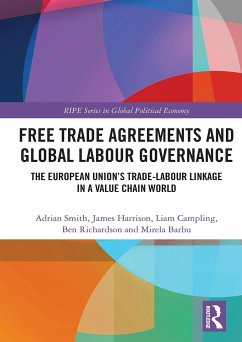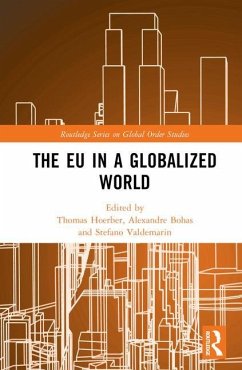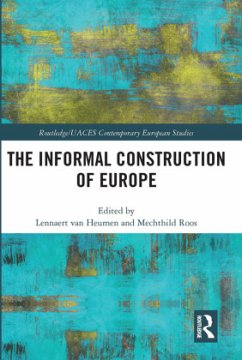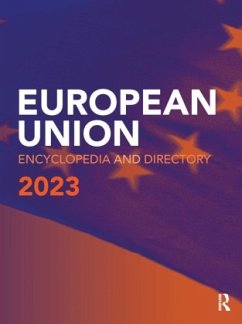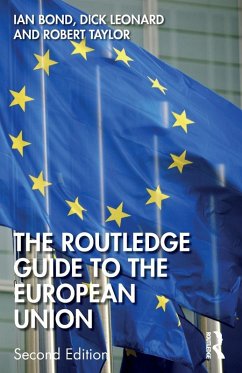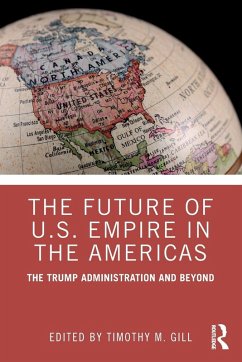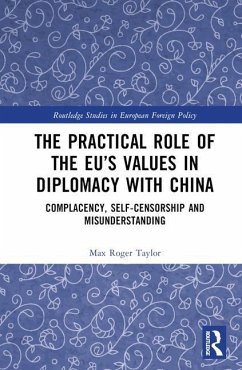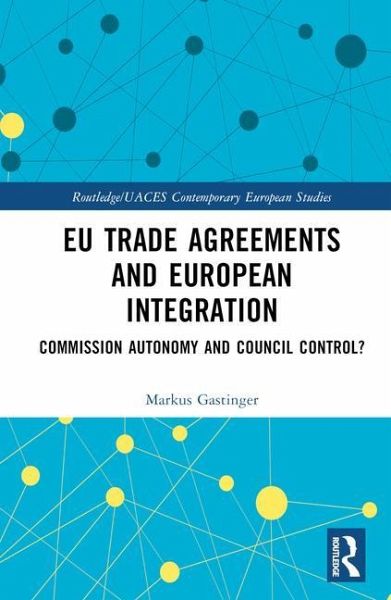
EU Trade Agreements and European Integration
Commission Autonomy or Council Control?
Versandkostenfrei!
Versandfertig in 6-10 Tagen
154,99 €
inkl. MwSt.
Weitere Ausgaben:

PAYBACK Punkte
77 °P sammeln!
EU Trade Agreements and European Integration studies 50 bilateral trade agreements negotiated by the European Commission from 1970-2008 and how they shaped European integration.The book argues that the Commission used these trade agreements, signed primarily with countries in Asia and Latin America, to advance European integration by ensuring that they became wider in scope and institutionally deeper by establishing 'joint bodies' - even in the face of resistance from member states in the Council of the European Union. Drawing upon principal-agent theory to explain Commission autonomy and Coun...
EU Trade Agreements and European Integration studies 50 bilateral trade agreements negotiated by the European Commission from 1970-2008 and how they shaped European integration.
The book argues that the Commission used these trade agreements, signed primarily with countries in Asia and Latin America, to advance European integration by ensuring that they became wider in scope and institutionally deeper by establishing 'joint bodies' - even in the face of resistance from member states in the Council of the European Union. Drawing upon principal-agent theory to explain Commission autonomy and Council control as well as extensive archival material and other sources across six in-depth case studies, it shows that the Commission primarily relied on asymmetric information to shape trade agreements in earlier negotiations. In later negotiations, the Commission harnessed its agendasetting power to submit agreements that the Council could only accept or reject. Overall, the bookargues that these 50 trade agreements significantly impacted European integration by increasing the Commission's external action capability, transforming it into a truly global political actor - one trade agreement at a time.
This book will be of interest to scholars and students of European Union Studies and EU policy-making, practitioners involved in trade and external relations, and engaged citizens in Europe and abroad, particularly in India, which is prominently featured in the book.
Introduction Chapter of this book is freely available as a downloadable Open Access PDF at http://www.taylorfrancis.com under a Creative Commons Attribution-Non Commercial-No Derivatives (CC-BY-NC-ND) 4.0 license.
The book argues that the Commission used these trade agreements, signed primarily with countries in Asia and Latin America, to advance European integration by ensuring that they became wider in scope and institutionally deeper by establishing 'joint bodies' - even in the face of resistance from member states in the Council of the European Union. Drawing upon principal-agent theory to explain Commission autonomy and Council control as well as extensive archival material and other sources across six in-depth case studies, it shows that the Commission primarily relied on asymmetric information to shape trade agreements in earlier negotiations. In later negotiations, the Commission harnessed its agendasetting power to submit agreements that the Council could only accept or reject. Overall, the bookargues that these 50 trade agreements significantly impacted European integration by increasing the Commission's external action capability, transforming it into a truly global political actor - one trade agreement at a time.
This book will be of interest to scholars and students of European Union Studies and EU policy-making, practitioners involved in trade and external relations, and engaged citizens in Europe and abroad, particularly in India, which is prominently featured in the book.
Introduction Chapter of this book is freely available as a downloadable Open Access PDF at http://www.taylorfrancis.com under a Creative Commons Attribution-Non Commercial-No Derivatives (CC-BY-NC-ND) 4.0 license.





